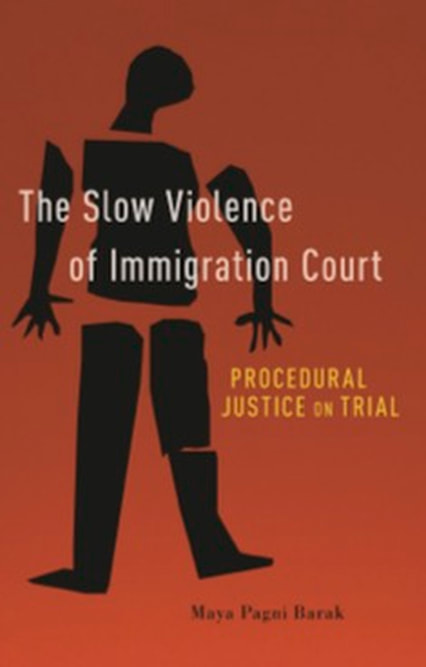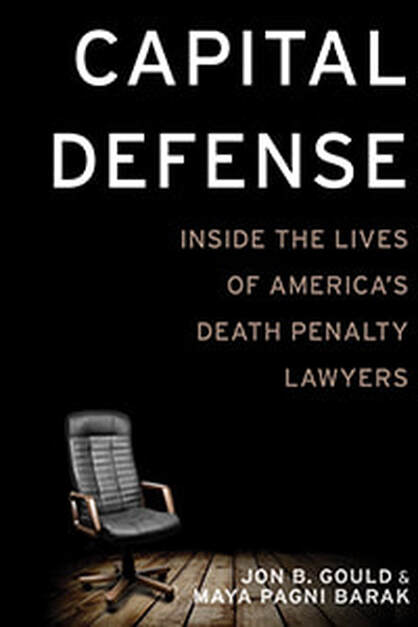|
The Slow Violence of Immigration Court: Procedural Justice on Trial
(2023, NYU Press) Grounded in the illuminating stories of people facing deportation, the family members who support them, and the attorneys who defend them, The Slow Violence of Immigration Court invites readers to question matters of fairness and justice and the fear of living with the threat of deportation. Although the spectacle of violence created by family separation and deportation is perceived as extreme and unprecedented, these long legal proceedings are masked in the mundane and are often overlooked, ignored, and excused. In an urgent call to action, Maya Pagni Barak deftly demonstrates that deportation and family separation are not abhorrent anomalies, but are a routine, slow form of violence at the heart of the U.S. immigration system. Learn more about the book here. "Maya Pagni Barak demonstrates and argues convincingly that no amount of procedural justice reforms will protect non-citizen immigrant populations from the US deportation regime. The regime’s tentacles run too deep in these targeted communities to formally ensure their social inclusion. An essential read for those who care about our democratic future." ~David Brotherton, co-author of Banished to the Homeland: Dominican Deportees and Their Stories of Exile "Barak draws from interviews and ethnographic observations to make a cogent case that the immigration court system needs far more than procedural reforms; it requires a radical reimagining. This book will be especially useful in classes on immigration and procedural justice as Barak eloquently weaves heart-wrenching stories with clear explanations of our complex system of immigration laws and courts." ~Tanya Maria Golash-Boza, author of Deported: Immigrant Policing, Disposable Labor, and Global Capitalism |
|
Capital Defense: Inside the Lives of America's Death Penalty Lawyers (2019, NYU Press)
Based upon over 60 interviews with capital defense attorneys from across the country, the book explores the challenging practice of death penalty defense. Among other topics, the book covers issues of race and gender, the attorney-client relationship, and the effects of capital work on those involved. Learn more about the book here. "A thoughtful, immensely readable, and deeply researched book about the extraordinary lawyers who represent the condemned in the United States. The authors have made a significant contribution to sociology, criminology, legal ethics, and the growing scholarly work on professional identity. This book captures the world of capital defense like nothing I’ve seen before: the courage and humility of the lawyers; the grimness of the setting; the moral urgency of the work. The capital defenders whose voices ring throughout this book are inspiring. They are fighting the good fight for the most desperate and despised among us—in the most challenging and chilling of contexts. You can feel their passion, pathos, and pride of these lawyers long after you finish the book." —Abbe Smith, author of Case of a Lifetime: A Criminal Defense Lawyer’s Story |


